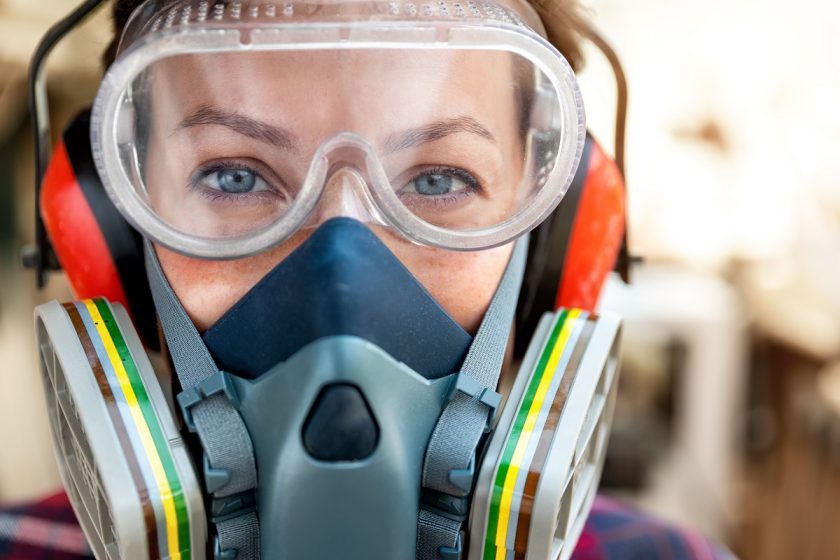No products in the cart.
Why are face fit tests important?
Mask face fittings are important to protect you and your team from hazardous materials such as asbestos and dust particles on site. There is increasing awareness of the long-term health impacts of inhaling hazardous materials or even just dust particles on site. More than ever, this highlights how essential it is to not just wear a face mask but also to ensure that it is properly fitted for maximum protection. Face masks are one of the first lines of defence when carrying out any construction work that will create some form of dust that could be inhaled, so getting a proper fitting helps ensure your lung health is not compromised in the future.
Why is it essential to wear face masks?
Respiratory Protective Equipment (RPE) has been designed for the protection of the user and to prevent exposure to hazardous airborne particles such as dust, fumes, gas, and vapour. These invisible particles can be dangerous and can cause chronic lung disease or lead to death later in life.
Current regulations mean wearing a mask is only essential when working with hazardous materials such as asbestos. However, it really should be mandatory for all construction workers to carry out tasks such as drilling, sanding, grinding, dry sweeping, and handling dusty powders.
More and more statistics are showing the increase in the number of those suffering from occupational-related illnesses, such as chronic lung disease or cancer, through the inhalation and exposure to hazardous dust particles on-site has risen.
Getting a mask fitted?
Tight-fitting masks are not ‘one size fits all’ and should be fitted by specialists trained to face fit or with occupational health or hygiene experience. It is also important that wearers are clean-shaven as this affects the ability to form a seal, meaning they are likely to inhale airborne particles.
What is a mask fit test?
A fit test is the means by which facepieces or masks are fitted to the user, and the integrity of the seal is checked to ensure it is air-tight. This can be done in 2 different ways, ‘Qualitative’, which is subjective and ‘Quantitative’, which is measurable.
Qualitative fit tests are where a user is covered with a hood, and a strong-tasting solution is released into the space. If the user tastes the solution, then the mask is not air-tight. This, however, is very reliant on a person’s taste to establish if the air is getting in.
In a Quantitative test, a user wears a mask or respirator, which is fitted with a particle counter, while they perform a range of movements to mimic working. During this time, a machine measures the volume of particles within the mask. This tells the tester if it is sealed or not.
Most accredited suppliers will carry out fit tests in their own facilites or will offer a come to you service, charged at a day rate. There will also be suppliers that can provide you with a range of masks, so you don’t have to buy these separately, making it a hassle-free experience.
Duty of care is paramount for construction workers on-site. They are exposed regularly to what might feel like harmless materials now but could have devastating effects later in life. An individual’s health should be a priority and definitely something that should not be compromised when simple solutions like wearing a mask can provide invaluable protection.
Read more about face fit testing and other working with asbestos guidance notes in the Worksafe: Management and removal of asbestos
Book a fit test
Book a fit test for you or your team and ensure they are properly protected. Book now.
For more information, please don’t hesitate to contact your local branch, where one of the team will be happy to help.
